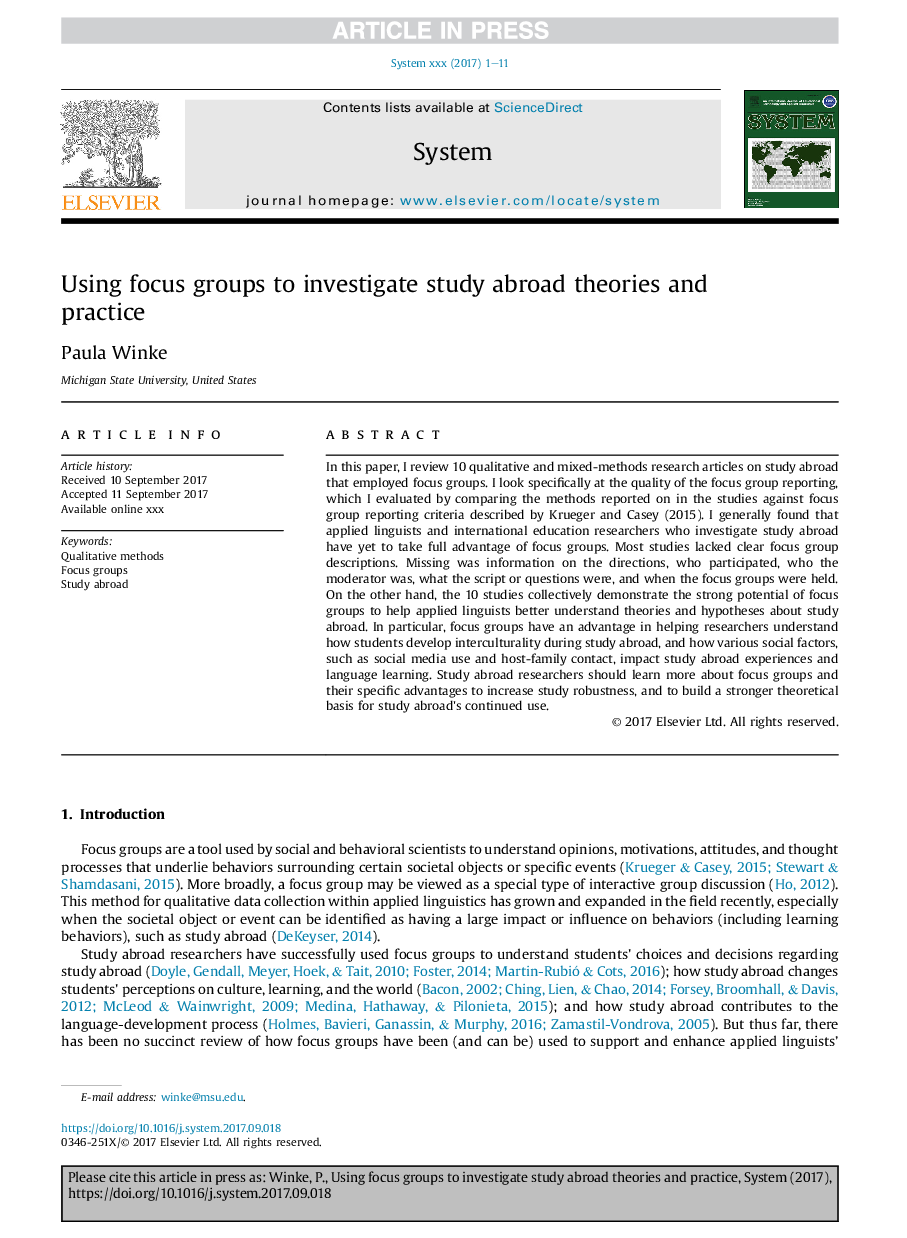| Article ID | Journal | Published Year | Pages | File Type |
|---|---|---|---|---|
| 6849489 | System | 2017 | 11 Pages |
Abstract
In this paper, I review 10 qualitative and mixed-methods research articles on study abroad that employed focus groups. I look specifically at the quality of the focus group reporting, which I evaluated by comparing the methods reported on in the studies against focus group reporting criteria described by Krueger and Casey (2015). I generally found that applied linguists and international education researchers who investigate study abroad have yet to take full advantage of focus groups. Most studies lacked clear focus group descriptions. Missing was information on the directions, who participated, who the moderator was, what the script or questions were, and when the focus groups were held. On the other hand, the 10 studies collectively demonstrate the strong potential of focus groups to help applied linguists better understand theories and hypotheses about study abroad. In particular, focus groups have an advantage in helping researchers understand how students develop interculturality during study abroad, and how various social factors, such as social media use and host-family contact, impact study abroad experiences and language learning. Study abroad researchers should learn more about focus groups and their specific advantages to increase study robustness, and to build a stronger theoretical basis for study abroad's continued use.
Related Topics
Social Sciences and Humanities
Arts and Humanities
Language and Linguistics
Authors
Paula Winke,
